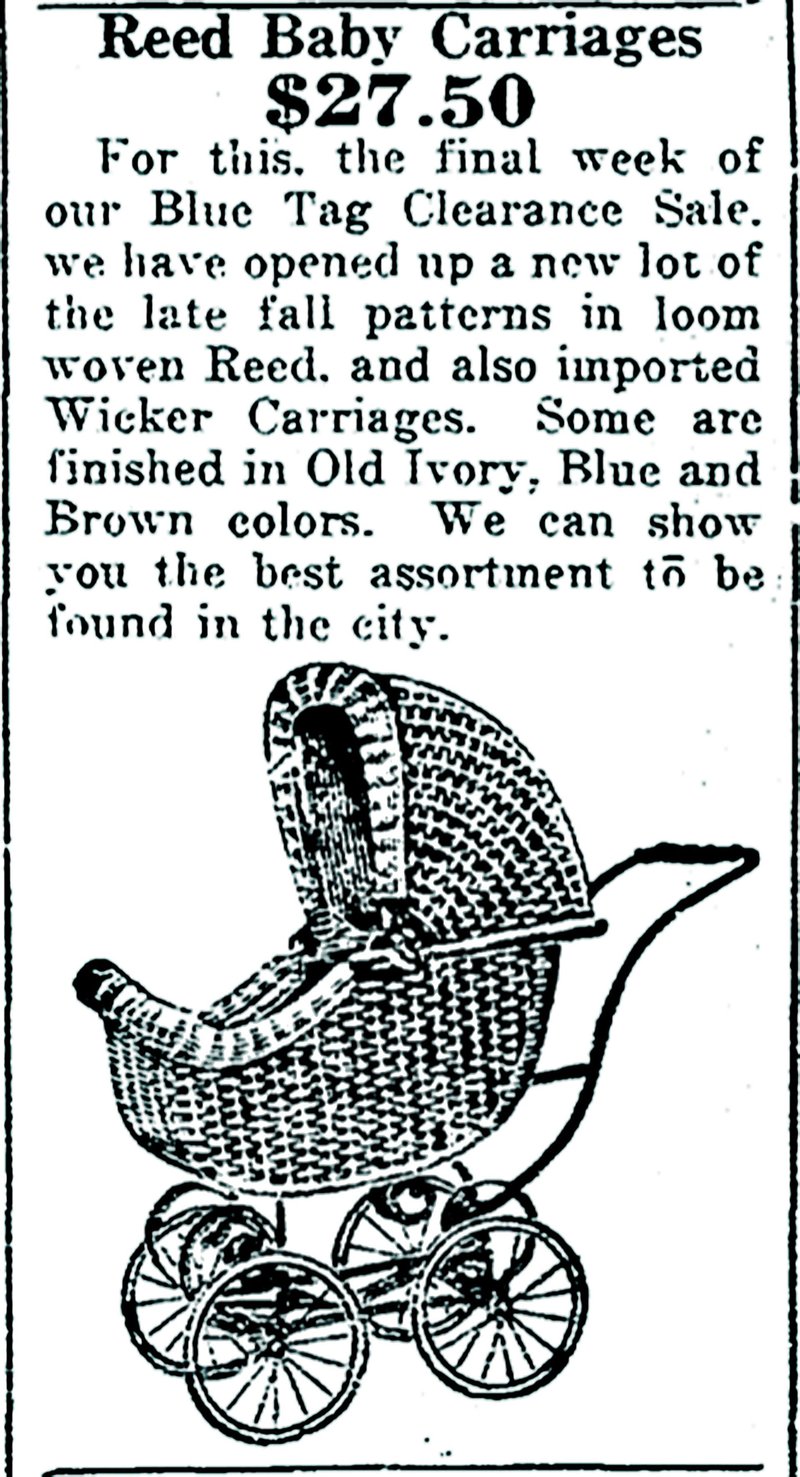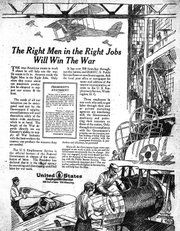Imagine arriving home after dark to find a "peculiar little bundle" on the front steps. It is a 4-month-old baby.
This happened to Mr. and Mrs. M.C. Bren of 207 Prospect Ave. in Little Rock, as reported by the Aug. 14, 1918, Arkansas Gazette.
Wrapped in the baby blanket was a note: "Please give my little darling a good home and please learn it to pray, is a mother's wish. I am too poor to keep it."
The Brens couldn't keep the baby, either, calling immediately for the police, who turned her over to Mrs. Jennie Erickson, county probation officer.
Reading this small item in that long ago newspaper, I was thinking about how it isn't hard to imagine such a desperate mother today. Then my gaze strayed to something in the next column:
Fort Smith, Aug. 13 -- Accompanied by the girl's step-father, who carried her mother's consent to the wedding, Margaret Banks, aged 15, and J.M. Grigsby, who gave his age as 70, were married here today. They live at Cedar Creek, Scott county.
Grigsby apparently sought to camouflage his age by dyeing his mustache a brilliant black. Luther M. Hopkins, deputy county clerk, thought out loud when he issued the license.
"What's the matter?" inquired Grigsby, "is it a crime?"
"No, it's not a statutory crime, I am sorry to say, but it's a shame and a disgrace," replied the license clerk.
Underage marriages occur today, but "age" is 18. A boy of 17 or a girl of 16 may be married in Arkansas, but it requires parental consent and the consent can be voided by the court if the parent isn't fit or marriage isn't in the child's interest. An even younger child might be allowed to marry in the case of pregnancy or birth, but it requires a court order besides parental consent. (ACA 9-11-102 to 105, "Minimum age -- Parental Consent")
Times haven't changed, but also they really have.
• In the Aug. 12, 1918, Gazette, I read that one Tony Saloni, "said to be a hobo," was arrested in North Little Rock and charged with indecent exposure, having been found in nature's garb on the bank of the Arkansas River near the Iron Mountain railway bridge.
Saloni said he was washing his clothes. He had been arrested before in Little Rock as a suspected slacker but proved he had registered for the draft in California. Could the naked Italian hobo be ... a spy?
He is also charged with being a German sympathizer, it being alleged that he was born in Germany and has served in the German army.
• The Aug. 12 paper also reported that U.S. Army enlisted men were no longer allowed to buy better-fitting uniforms in the city. They must wear whatever the quartermaster had tossed to them at Camp Pike.
The man who has laid in an elaborate "trousseau" from the tailoring establishments is out of luck, and if his build is such that the issue clothing will not fit him, he is still out of luck, as the new regulation will be strictly enforced.
Four days later, the M.M. Cohn Co. -- styling its name with uppercase M's -- advertised great deals on officers' uniforms.
• Imagine being ordered to buy your coal in August or suffer without in winter. The Aug. 13 paper included a warning from state fuel administrator H.C. Couch that there would be no coal sales in the timber belt for people who had made no effort to buy coal during the summer.
You have only 30 or 40 days left, order your coal or else.
ROUND 'EM UP
A truly amazing event happened Aug. 15, 1918.
Shop and factory whistles and church bells throughout Little Rock gave the signal last night at 7 o'clock, which released the 2,500 workers, who are making a house-to-house campaign of the city. Each man has been assigned to his post by Alderman C. E. Smith and his 13 vice chairmen, and were scattered throughout the different wards.
A tree trunk of underlings came under them, including 51 Rotarians.
They went door-to-door to demand from male residents information about their occupations and enroll them -- like it or not -- in the United States Public Service Reserve.
So imagine, there you are, peacefully digesting on the front porch in the gloaming, scratching your skeeter bites, Mama inside clearing up from supper. A clanging hubbub sets up down the way, all the bells and dogs in town shutting down the cicadas. And here comes this smug fella with a lantern and a clipboard ...
The U.S. Employment Service wanted a list of skilled and unskilled laborers who could be summoned -- but not drafted -- out of jobs deemed by the local draft board to be nonessential to the war. They would be placed in essential jobs. Besides the appeal to patriotism, the pitch was that these jobs carried good wages. Big ads promoting them stressed the importance of remaining where one was until called.
At least 200 manufacturing firms in Arkansas are at present holding government contracts and are on the preferred list for labor. They will be supplied first when the need for labor arises.
Earlier in the year, national campaigns for voluntary enrollment had met some success, especially in filling shipyard rosters. But more labor was needed.
In August, state labor director Ben D. Brickhouse began the Arkansas drive for the new U.S. Public Service Reserve, setting up a series of door-to-door canvasses that, judging by newspapers, began Aug. 6 with Hot Springs, where 3,000 "enrolled."
Little Rock's task was larger and, the Democrat and Gazette reported, the canvassers' results weren't complete for a week. This is not hard to imagine. City population was on its way to 65,142 (per the 1920 census). Think of all those houses, all those volunteers. All that mandatory volunteering.
Ultimately, Brickhouse announced that 20,000 skilled and unskilled laborers had been registered in Pulaski County, and it would be easy to supply the county's part of the state quota of 3,870 asked for by the U.S. Employment Service.
In October, "Uncle Sam wants you" ads appeared in the papers, with a frowning Uncle making a muscle and pointing to the words "Immediate action is requested." Below were dozens of openings, from Accountant to Vulcanizer. But by then, the war was nearly won.
Soon the U.S. Employment Service would be trying to find jobs for returning soldiers -- while its funding lasted. As you might imagine, it didn't last long.
...
Wait a minute -- what became of the baby? Between 8 and 10 a.m. of the day the Gazette reported the abandonment, social worker Erickson fielded 30 phone calls from people who wanted her. By sunset she had a home.
Wow. No way would that happen today.
Imagine how glad I will be to receive your email:
ActiveStyle on 08/13/2018


